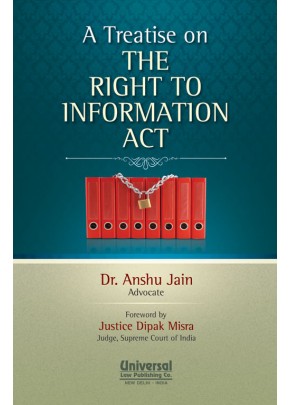A Treatise on the Right to Information Act
no information available
Every liberal democracy nowadays is moving towards a culture of a openness and India is no exception to this trend. As a matter of fact, this concept of an open government emanates directly from Article19(1)(a) of the Constitution of India guaranteeing the freedom of speech and expression subject to certain reasonable restrictions. This being so, the right to information assumes greater importance now than ever before. Every citizen should responsibly make use of this right and participate in the functioning of the government. This book has been worded in a simple, yet lucid style which allows the reader not only to easily understand the salient features of the Right to Information Act, 2005, but also be aware of the latest developments in the area of Information Rights. The historical developments leading to the passage of the Act in India as well as the global perspective in this regard has also been discussed in detail in the book, which has been systematically divided into nine broad chapters. The highlight of the book is the fact that it is the outcome of an analytical study conducted by the author wherein views of various stakeholders in the information regime, including judges, information commissioners as well as the common information seekers, have been collected and assessed. Conflicting views have been discussed and deliberated upon. Landmark orders and judgements are not merely mentioned but have been analysed thoroughly. Decisions followed, overruled or approved are also indicated. The book intends to be of immense assistance to students, scholars, researchers and all those who wish to know more about the theoretical (normative) as well as the practical (functional) aspects pertaining to transparency issues in the country. ... Read more Read less











